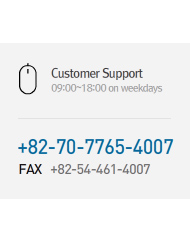Navigating Tax Regulations
Page info
Name Ira / Date25-05-13 22:46 Hit12 Comment0Link
Contents
In today's complex tax environment, sustaining open and effective communication with tax authorities is essential for businesses to avoid audits and penalties. Despite the superior efforts of taxpayers, tax authorities around the world are increasingly sophisticated in their strategies to detect and rectify tax evasion and non-compliance.
A properly maintained relationship with tax authorities can minimize audit risks but also reduce disputes and ensure compliance with tax regulations. To achieve this, it is crucial for taxpayers to select a proactive approach by engaging in regular communication with tax authorities. This involves staying up to date about tax laws and regulations, seeking the advice of tax professionals, and reporting accurately and in a timely manner.
Successful tax authority communication is two-way, requiring taxpayers to be proactive and responsive to queries and notifications from tax authorities. This means being prepared to provide clear and concise information about financial transactions, business operations, and tax obligations. Tax authorities need to be able to confirm that taxpayers are in compliance with tax laws and regulations, and any communication breakdown can lead to audit notifications and subsequent penalties.
In this article, we will discuss the significance of tax authority communication and audit support, highlighting the key strategies and benefits of engaging with tax authorities proactively.
Why Tax Authority Communication Matters
Tax authorities have become increasingly aggressive in their pursuit of tax evasion and non-compliance, employing sophisticated methods to discover anomalies in financial data and investigate suspicious transactions. To navigate this challenging, taxpayers need to maintain an advantage of the game by keeping an open and transparent relationship with tax authorities.
Key strategies for effective tax authority communication include:
- Regular Scheduled engagement: Scheduling regular meetings and correspondence with tax authorities to ensure that any queries or concerns are addressed promptly and accurately.
- Information providing: Providing tax authorities with concise information about business operations, financial transactions, and tax obligations.
- Compliance assistance: Collaborating with tax authorities to prevent audits by showing proactive compliance with tax regulations.
- Dispute settlement: Engaging with tax authorities in a constructive and respectful manner to resolve disputes and resolve any differences in interpretation of tax laws and regulations.
The benefits of successful tax authority communication are numerous, including:
- Reduced audit risks: By maintaining regular communication with tax authorities, taxpayers can reduce the likelihood of audits and reduce the risk of penalties and fines.
- Enhanced compliance: Engaging with tax authorities in a proactive manner can hinder taxpayers demonstrate their commitment to compliance and reduce the risk of disputes.
- Better reputation: A well-structured relationship with tax authorities can better a company's reputation by demonstrating its commitment to tax transparency and compliance.
- Enhanced understanding of tax laws and regulations: Regular engagement with tax authorities can offer taxpayers with a expanded understanding of tax laws and regulations, enabling them to create informed decisions about their business operations.
When undergoing a tax authority audit, taxpayers can expect a range of support services to assist them in managing the process. These services may include:
- Pre-audit consultations: Tax professionals can consult with taxpayers to analyze the audit process, and develop a strategy for navigating it successfully.
- Audit help: Experienced tax professionals can supply assistance during the audit process, including reviewing financial data, responding to queries, and completing written responses.
- Regulatory advice: Tax authorities can provide guidance on regulatory requirements and compliance procedures, helping taxpayers to guarantee that their business operations comply to tax laws and regulations.
- Representation during audits: In some cases, taxpayers may require representation in the audit process, and tax authorities can supply support and guidance in this area.
Effective tax authority communication and audit support are essential components of a successful tax compliance strategy. By engaging in regular communication with tax authorities, taxpayers can reduce audit risks, improve compliance, and reduce disputes. Tax authorities also play a critical role in providing support and guidance throughout the audit process, helping taxpayers to navigate complex tax laws and 税務調査 どこまで調べる regulations.
By adopting a active approach to tax authority communication, taxpayers can minimize the risk of audits and penalties, minimize uncertainty, and ensure compliance with tax regulations.

Warning: Use of undefined constant php - assumed 'php' (this will throw an Error in a future version of PHP) in /home1/icecap/public_html/theme/icecap/skin/board/basic_en/view.skin.php on line 149













